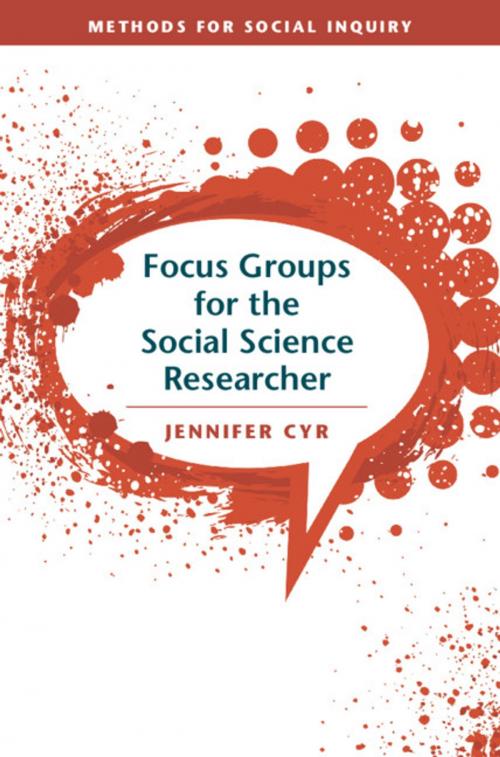Focus Groups for the Social Science Researcher
Nonfiction, Reference & Language, Reference, Social & Cultural Studies, Political Science, Social Science| Author: | Jennifer Cyr | ISBN: | 9781108100199 |
| Publisher: | Cambridge University Press | Publication: | May 31, 2019 |
| Imprint: | Cambridge University Press | Language: | English |
| Author: | Jennifer Cyr |
| ISBN: | 9781108100199 |
| Publisher: | Cambridge University Press |
| Publication: | May 31, 2019 |
| Imprint: | Cambridge University Press |
| Language: | English |
What is a focus group? Why do we use them? When should we use them? When should we not? Focus Groups for the Social Science Researcher provides a step-by-step guide to undertaking focus groups, whether as a stand-alone method or alongside other qualitative or quantitative methods. It recognizes the challenges that focus groups encounter and provides tips to address them. The book highlights three unique, inter-related characteristics of focus groups. First, they are inherently social in form. Second, the data emerge organically through conversation; they are emic in nature. Finally, focus groups generate data at three levels of analysis: the individual, group, and interactive level. The book builds from these three characteristics to explain when focus groups can usefully be employed in different research designs. This is an essential text for students and researchers looking for a concise and accessible introduction to this important approach to data collection.
What is a focus group? Why do we use them? When should we use them? When should we not? Focus Groups for the Social Science Researcher provides a step-by-step guide to undertaking focus groups, whether as a stand-alone method or alongside other qualitative or quantitative methods. It recognizes the challenges that focus groups encounter and provides tips to address them. The book highlights three unique, inter-related characteristics of focus groups. First, they are inherently social in form. Second, the data emerge organically through conversation; they are emic in nature. Finally, focus groups generate data at three levels of analysis: the individual, group, and interactive level. The book builds from these three characteristics to explain when focus groups can usefully be employed in different research designs. This is an essential text for students and researchers looking for a concise and accessible introduction to this important approach to data collection.















